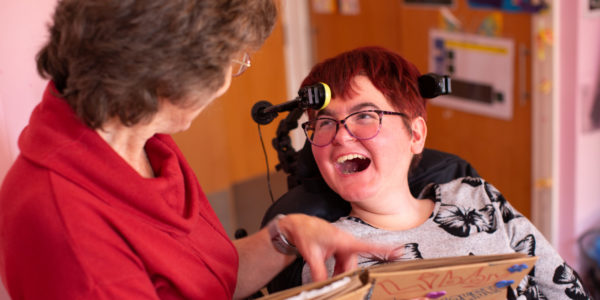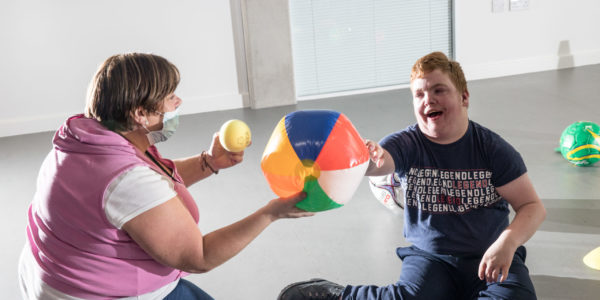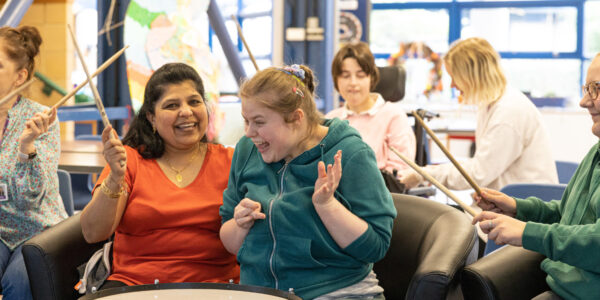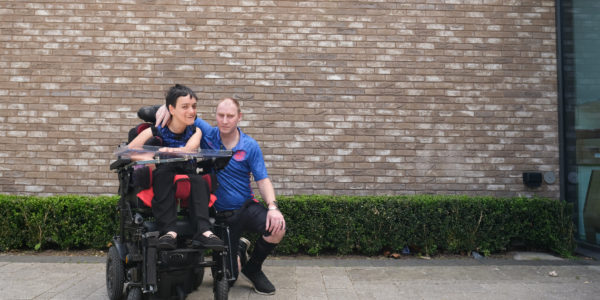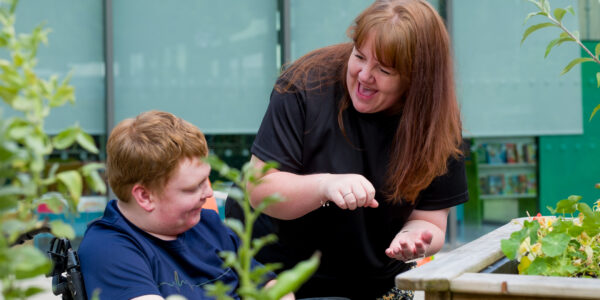Practical and emotional support for carers
Caring for a loved one who has complex disabilities can take its toll on you over time. It’s so important to look after your own wellbeing, for their sake as well as your own.
Ask us how we can support you
We support people with complex disabilities of all ages and their carers. Get in touch with our team to find out how we could support you.
This page gives more information about what support is available for carers in the UK, and how to access it.
If you’re looking for more information about financial support, visit our page about benefits for carers.
On this page:
- Support from social services
- Support from your GP
- Respite care
- Sense services
- Taking care of yourself when you’re a carer
Support from social services
Your local authority might be able to give you some practical help with caring. This could include things like:
- Equipment.
- Information about local support groups.
- Some extra support for the person you care for.
To get this support, you’ll need to have a carer’s assessment.
Find out more about carers’ assessments.
Support from your GP
Caring can be hard. It’s important your GP practice knows and can look out for your health and wellbeing, as well as offer advice and support.
Also, you may be entitled to other health services such as a free flu jab or annual health checks.
This is why it’s important to let your GP know that you’re caring for someone.
How to register as a carer with your GP
All GP practices should have a Carers Register.
If you’d like to register as a carer, simply ask your GP surgery how to sign up. Usually, they will give you a form to fill out.
Once you’ve done this, they should add a note to their system that you are a carer.
Respite care
Respite care is a way of describing services that give you a break from caring.
Find out more about respite care and how to access it.
Sense services
Sense is here for people with complex disabilities and for their families and carers, too.
Our services give carers a break from caring, while also giving people with complex disabilities the opportunity to build confidence, make friends and express themselves.
We also offer services for siblings, young carers, parents and families around the UK. Check out some of our services below, or speak to our information and advice service to find out more about how we could support you.
Taking care of yourself when you’re a carer
Making time for hobbies and self-care
When you’re caring for someone with complex disabilities, it can be so hard to carve out time to still do the things that make you feel like you.
Your own interests and hobbies can often take a back seat. It can be even harder to get a proper break, even if only for a few hours.
It’s not selfish to take care of your own needs. It’s important that you get time to exercise, pursue hobbies or simply rest. Even if you don’t have time to go to an event or activity, it’s a good idea to take short breaks whenever you can.
Taking some of the steps outlined on this page should help you to find some time to take care of yourself.
Building your own support network
Everybody needs help sometimes. It’s a good idea to share details of your caring responsibilities with your family and friends, so that they know what you’re doing and how best to support you.
They might even be able to share some of your responsibilities.
You might also find it helpful to speak to other carers and people who understand your situation.
Carers UK has an online forum, a directory of support groups and a listening service.
If you care for someone with complex disabilities, you can also contact Sense’s information and advice service for support.
More support for carers
This content was last reviewed in October 2022. We’ll review it again next year.



